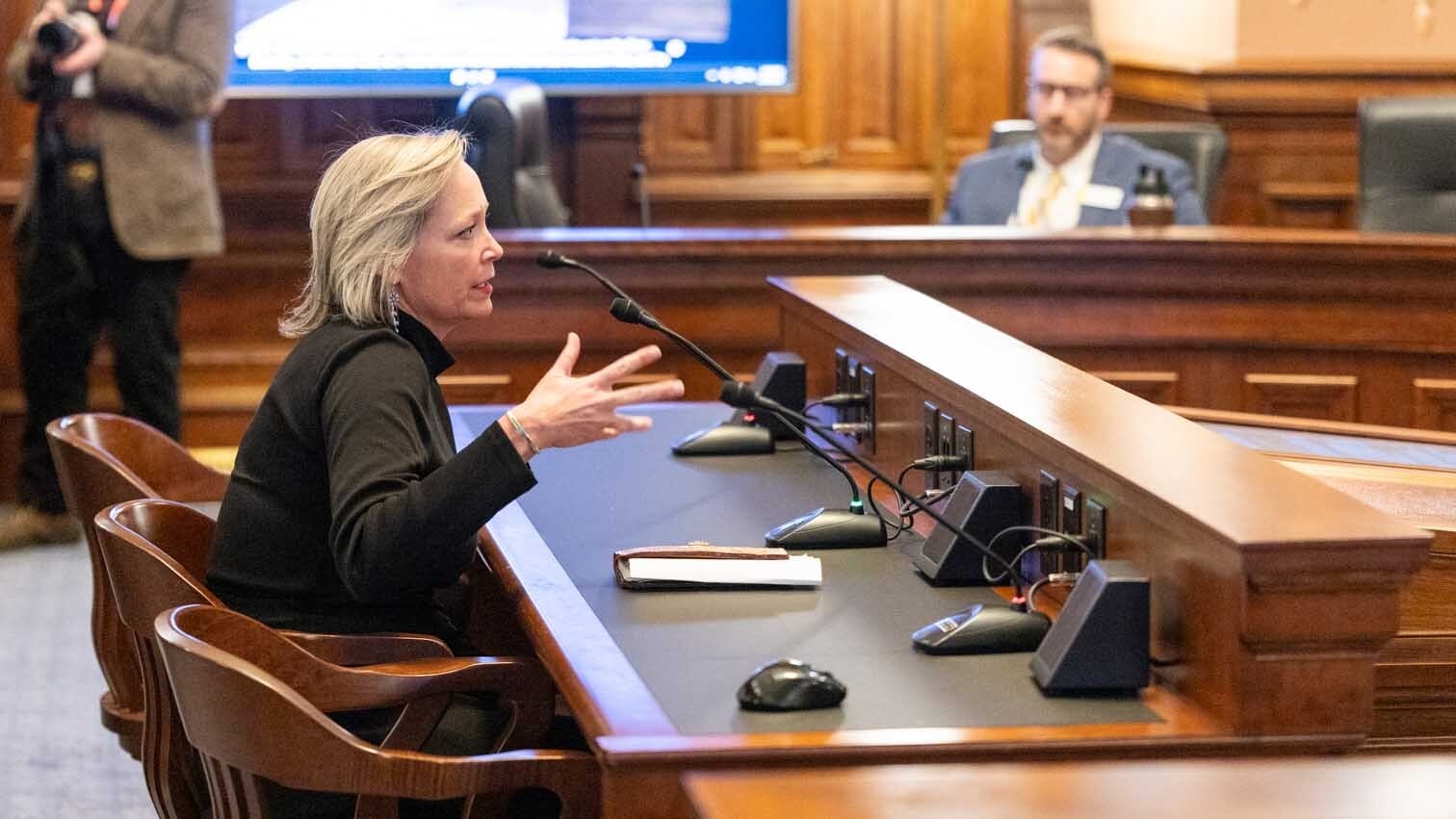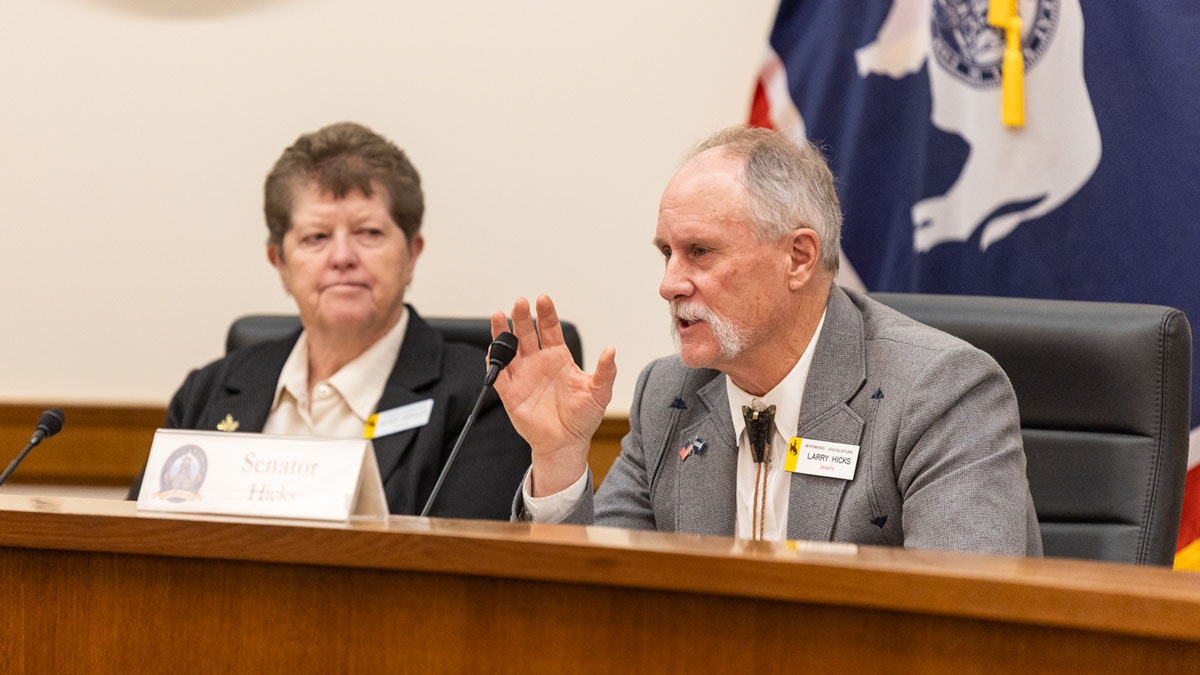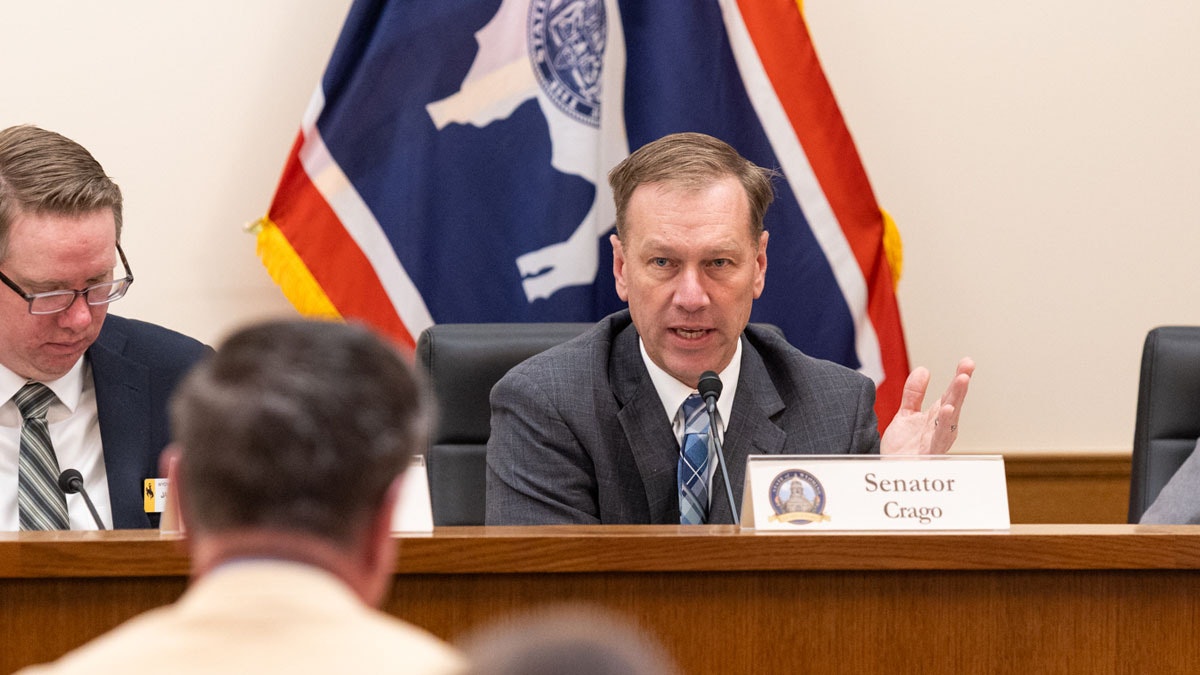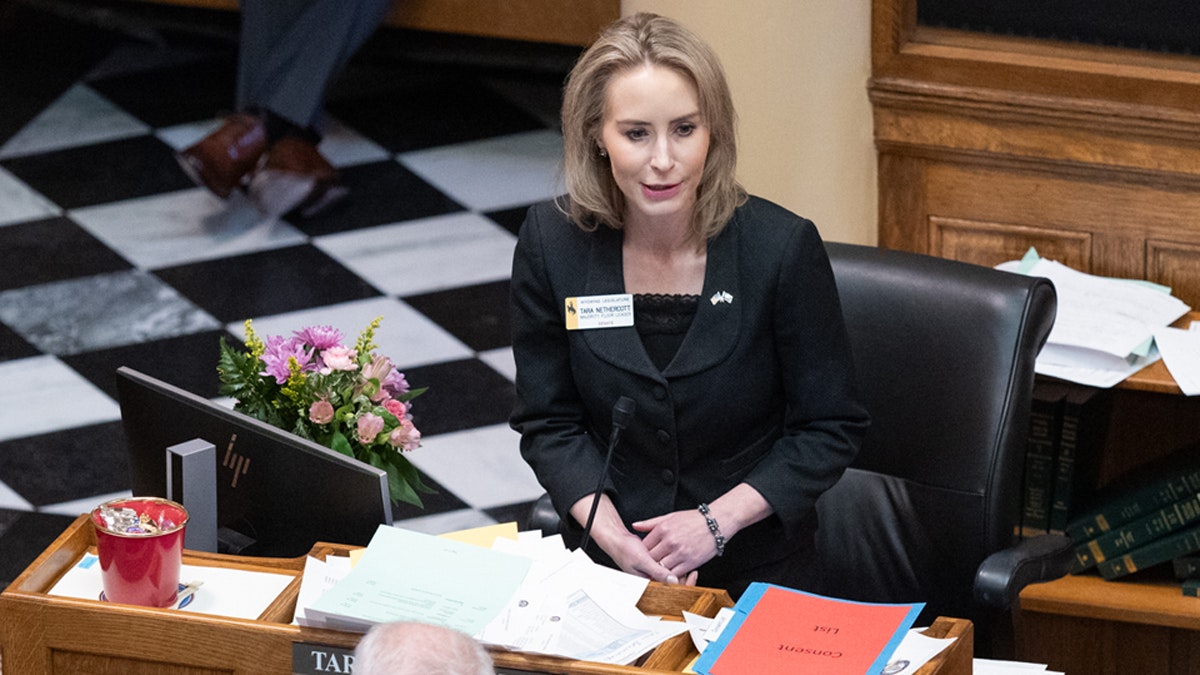When it comes to politics, policies and social issues, some people in Wyoming are afraid to speak up.
That’s the conclusion state Sen. Mike Gierau, D-Jackson, has come to as a result of his work on the Wyoming Legislature’s Regulatory Reduction Task Force.
Gierau said a lack of public participation in the task force’s meeting earlier this summer has prompted the group to launch a public survey in hopes of easing fears of retaliation for giving feedback. Although many people have told the task force that “everything is fine,” Gierau said some of those same people have told him privately they fear retribution from government agencies and individuals for voicing criticism or not supporting some political positions.
“They are concerned with ongoing relationships with those agencies and harming those relationships if they were to come out in a more public way,” he said.
Former Republican state legislator Eli Bebout, who served as both House speaker and Senate president, also is a member of the task force. Bebout said he’s not surprised people have been afraid to speak as their livelihoods sometimes are tied to the people they could be criticizing.
“It’s human nature to avoid controversy, but it’s something we need to take a hard look at,” Bebout said. “People need to let them know what they think.”
Every state legislative meeting is streamed on YouTube. Some are attended by nearly 100 people and those who provide a public comment are liable to get their thoughts printed somewhere in the media.
State Rep. Jon Conrad, R-Mountain View, said all this can create an intimidating dynamic for someone considering testifying.
The survey is "a great attempt to reach out and get in front of a group that is interested,” Conrad said.
Culture Battle
Because of its small population and relatively tightknit culture, Wyoming is often referred to as a small town with long streets.
The state’s agencies generally have fewer staff than what people might see in other states and thus, these groups tend to carry a less “faceless” bureaucratic persona in Wyoming.
Due to these factors, a state official in charge of approving a permit or fighting for a regulatory change that another person is applying for or opposes could easily be mutual friends with that same person or even be members of the same statewide organization.
“Your livelihood relies on a relationship with them. I can understand where you might be concerned about getting sideways with them because of a comment,” Gierau said.
Gierau mentioned how he had to maintain a good relationship with the Consumer Health Services Division when he ran his food service business. During his 40 years in business, he kept a good relationship with some inspectors, but found others “downright adversarial.”
“It was tough because they control your livelihood,” he said. “You feel like when it’s your livelihood it’s something you feel real keenly, whether it’s real or perceived. Sometimes the perception outstrips reality.”
Like peeling layers off an onion, Gierau said it sometimes takes a deep dive to understand a state agency’s culture and speculates that some of the changes the task force may need to enable could be more culture-based rather than changes to law.
He wants to shine a light on state agencies that are performing well in their interactions with the public as an example for lower-performing agencies to aspire toward.
Gierau also believes the state should be more considerate to the fact that around 70% to 80% of Wyoming residents live relatively close to the border of another state and could easily take their business there instead.
“It goes back to culture,” Gierau said. “There’s a culture there now, but we’ve got the tools to do it right and we’re doing it right.”
For The Best
Gierau said he’s surprised and disappointed that people feel afraid to voice their opinions and that “good government demands scrutiny.”
Bebout said if the public doesn’t keep checks on the government, it naturally becomes bloated.
“It takes effort to reduce government,” Bebout said. “It just keeps going, it just grows.”
He mentioned the need for public feedback on a rate increase proposed by Rocky Mountain Power, a government regulated- utility. A meeting held last week on the matter was attended by more than 150 people.
Gierau said constructive criticism from legislators, the public and the press can serve as an empowering force that creates a better result for all in the long run, even if it comes with some short-term unpleasantness.
In some instances, Gierau said he’s seen criticism serve as a motivating force for a state agency to prove someone wrong and show they are customer friendly. He mentioned former Secretary of State Ed Buchanan, who Gierau said significantly improved his office’s interactions with the general public. He also commended the Wyoming Treasurer’s office for greatly improving its efficiency for audit reports after some past issues.
“To me, that’s good government,” Gierau said.
He also said those who criticize are received with much more legitimacy when they also acknowledge when something is done right or improved, or provide potential solutions to the problems they’re identifying.
What Are They Looking For?
The purpose of the survey is to provide an avenue for the public to provide input on laws or other areas where the task force could reduce the regulatory burden on Wyoming’s businesses and residents to foster growth in the state’s economy, everywhere from field to hotel room.
“Everything is on the table,” Bebout said. “Anything that deals with rules and regulations in Wyoming.”
Some of the topics the task force tackled at its first meeting in June included workforce and affordable housing issues and zoning and local ordinances.
Public comments submitted by Sept. 11 will be considered for the task force’s next meeting Sept. 20-21. A public comment period will also be allowed at the end of each topic at the meeting.
The task force plans to discuss Gov. Mark Gordon’s regulatory sandbox proposal, dairy marketing, oil and gas and environmental regulations, housing issues and other state laws at this meeting.
Conrad said it will be essential that the task force not only receives comments, but acts on those thoughts in a purposeful way.
Gierau said those who submit comments can request anonymity.
“We’ll ask people to submit their names and when they testify, but also give them the opportunity to say, if you don’t want your name to be used in participation of a survey, that we’ll respect it,” Gierau said. “The key is to get the information.”
Bebout said one benefit of a private survey is that it helps provide a better analysis of how the public at large is feeling. Although there are many passionate people who speak publicly at legislative meetings, they don’t always represent the public at large.
“When it’s only the vocal minority that speaks, the silent majority has to live with what they say,” Bebout said.
Leo Wolfson can be reached at leo@cowboystatedaily.com.





